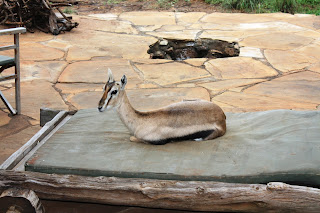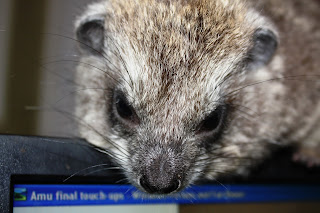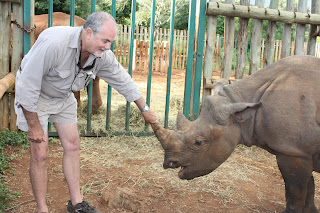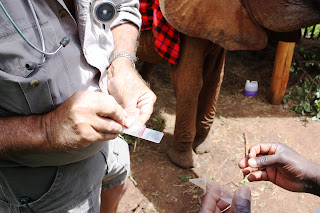On a recent visit to Kenya to treat sick elephants I had the pleasure of spending more time with The Sheldricks Elephant Orphanage. In the picture 3 generations on Sheldricks. Madame Daphne Sheldrick, Angela and son Shaun. They are earth angels.
The Wildlife Game Botswana: Is the Game Over?
by PH Bob Rokos
This article was first published in African Hunting Gazette, Vol. 18, Issue 13.
Has this safari paradise pulled the plug on hunting? How have we gotten into this state, and is it too late to undo it?
Why is big-game hunting being closed down in Botswana and what are the implications? Will Botswana become another Kenya, where poaching spiralled out of control as soon as hunting was closed in the mid 1970s? There are lots of questions about the future of hunting, wildlife, and poaching in Botswana.
Let’s start by looking at the past and present of Botswana and its hunting industry.
Sport hunting came to the former Bechuanaland around 1962 and the country quickly became one of Africa’s prime hunting destinations, attracting sportsmen from around the world. Botswana featured unfenced wilderness, plentiful game, and first-class classic tented safari camps, excellent food and service, and attention to detail by outstanding professional hunters. Its remoteness, political stability, and general harmony also supported the hunting safari industry.
When the first professional hunting outfitters came to Botswana from East Africa, most of the rich game areas were still unchartered. The Kalahari Desert, Okavango swamps, and upper reaches of the Chobe and its riverine connections to Angola, were mostly unknown or not completely mapped. What a hunter’s paradise! Botswana was first only a hunting destination. There were no – and I repeat, NO – photographic or game-viewing tourism.
In the early 1960s, there was also little, or no, infrastructure, roads, water, power, and little investment in public health and education. There was also very little business going on all together. Cattle/livestock were the nation’s largest per person money earner, and South African mining and government civil service were the largest employers. In fact, the country’s capital was in Mafikeng, South Africa
When the safari outfitters came forward with a plan to manage and utilize Botswana’s wildlife, which resulted in generating foreign cash earnings and increased local employment, the government agreed whole-heartedly with the safari hunting industry. It was a “win-win” situation for all, and the safari outfitters and the government worked hand-in-hand in developing the game laws and hunting regulations; most of these laws are still in force today.
At Independence, in 1966, Bechuanaland became Botswana, and the hunting industry was full speed. These were the heydays of Botswana’s safari industry; international hunters experienced a pristine wilderness that offered a wide range of quality game trophies, including Cape buffalo and lion, on vast, well-managed hunting concessions. The safari outfitters not only brought hunting to Botswana, they also brought their business skills and entrepreneurship. The first “big-time” business in Francistown at Independence was Botswana Game Industries (BGI), started and run by Peter Becker, a well-known PH, acute businessman, and a gentleman from the first wave of safari people to reach Botswana in the early 1960s.
In the early 1970s there were only twelve miles (~20km) of tarmac in Botswana; the road from Francistown to Maun was a good two-day trip. But things were about to change: Diamond revenue started coming in, and then income from beef. Development of the entire infrastructure took the high road; almost overnight, Botswana progressed into a modern nation. In a matter of a few years the country was transformed, and the big-game hunting that had, in many ways, helped build the nation, was slowly being pushed aside. Cordon fences and spraying the tsetse in the Okavango District with DDT– cattle and gems were writing the cheques for this advancement! From the largest cattle owner to the smallest, Botswana is cattle, and the cattle business affects most people. If foot-and-mouth disease is found in Botswana, it’s front-page news; but when sable and sitatunga were taken off the hunting quota, not a word was spoken. Luckily, Botswana puts its income back into the country, investing its resources in its people and infrastructure.
Just as a child grows into an adult, so does a small country develop into a progressive, strong and democratic nation. Although very arid and with prolonged periods of drought, Botswana’s “population” includes 2.5 million cattle, one million or so small stock, and two million people, 20% of whom are unemployed, not including discouraged workers.
The Community Based Natural Resources Management Program (CBNRMP) designed community-based projects to get the communities located in wildlife areas involved in the management of their resources; the idea is for these communities to take ownership of their wildlife resources and benefit from the revenue it generates. A great plan but with one major setback: individual greed. Don’t think there isn’t corruption in the safari business, whether its government departments, land boards, villages and their community trusts, or the safari outfitters themselves. Of course, there are exceptions. But corruption and poor administration are major setbacks for Botswana’s communities working in community-based wildlife management.
Today, in the 21st century, big-game hunting is playing second string to new events, and professional hunting is no longer the prime mover in Botswana’s development. Instead, in this “green” and politically correct age, the public prefers photographic tourism with its zebra-painted vehicles crammed full of low-budget tourists in search of their piece of Africana.
But I have trouble with the terms “consumptive” versus “non-consumptive” tourism; I realize that they describe hunting versus non-hunting safaris. But they are very misleading: photographic safaris “consume” the bush, with their thousands of people and polluting vehicles in the bush most of the year. During the hunting season, safari camps usually host one client at a time, employ only a handful of vehicles in the entire hunting concession, and pack up and leave the bush alone for six months of the year.
I recently flew over the heart of the Okavango at last light, and was astonished at the number of camp lights! From Jedibe to Jao and on to the Buffalo Fence, it looked like a small city. Uninhabited and nameless places that I travelled through long ago by mokoro or boat now have roads and bridges, large safari camps and lodges with generators for tourists, noise, vehicles, powerboats, and lots of people. How can anyone call this “non-consumptive”?
Botswana hunting will never be the same. If the powers that be could step away from their anti-hunting outlook and understand it as a positive, income-generating management and utilization tool that creates employment and helps protect wildlife from poaching, surely Botswana could offer a limited number of high quality full-bag hunting safaris, with little or no impact on wildlife populations.
The two areas that come to mind for these high-priced, unfenced hunts are Chobe and the southern Kalahari. By offering Cape buffalo, leopard, lion and elephant, along with plains game, including species like red lechwe, sable and even sitatunga, the government could auction hunts to the highest bidders, who, I guarantee, would be standing in line.
Ethical sport hunting is a positive wildlife management tool and foreign cash-income earner that contributes to wildlife conservation. It also generates employment to people who may not be picked up under conventional offers.
Unfortunately, only hunters understand this. And, unfortunately, the anti-hunters got their PR game plan in Botswana straight on track, while we, the hunting community, were sleeping. I believe that had we done our PR right and given appropriate visibility to the contribution hunting makes to society in Botswana, we could have changed the prevailing anti-hunting mindset there.
Today, the anti-hunters have the ears of the highest officeholders in Botswana; they prey on the fact that most people do not understand trophy hunting. They do understand hunting for meat but shooting an animal only for its trophy is an alien concept to the majority of people. Anti-hunting groups are pressuring the government to stop hunting at a time when Botswana may not feel it needs the income and employment that hunting generates. Relying solely on diamonds can be very risky, and many economists would advise widening the domestic tax base and preparing the economy for a decline in diamond revenues.
At present, hunting has been pushed out of the prime wildlife areas and forced into less-than-prime areas like the mopane forests in the north. In fact, the terrain and boreholes make these areas suitable for elephant hunting, even in the dry season.
The 2012 Land-Use Plan for Northern Botswana will be published soon; it will be interesting to see its impact and implementation. I would hate to see these areas in the north go inactive or without water. Without water sources, during the dry season elephant herds would concentrate longer, and do more damage, along the riverine areas of the major rivers. More permanent water in the north means less pressure on its major rivers and agricultural areas.
The protection of the essential habitat of other species is vital in a country with an elephant population of some 133,000. Vast forests have been lost to satiate elephant appetites, and we must balance the need to preserve elephants with maintaining a healthy environment for other creatures in the ecosystem. Hunting helps achieve this balance.
These areas are not suitable for photographic tourism; they are also north of the veterinary Buffalo Fence and thus are not open to cattle farming under the current Land Use Plan. Outfitters operating here have invested extensive resources in making these mopane areas suitable for international trophy hunters.
So is the game over? I think so. As you eat your burger in an air-conditioned Wimpy in Maun, just ask yourself, “Where did all these people come from and how is everyone able to drive a nice automobile on tarmac roads?”
If professional hunting is closed and the land previously safeguarded by safari outfitters and Department of Wildlife personnel (who accompany all hunting safaris) is left vacant, all the ingredients are in place in northern Botswana to make large-scale poaching a reality, for the growing Asian hunger for ivory is real. For the sake of Botswana’s wildlife, its ecosystems and, especially, its elephants, CITES-regulated elephant hunting in our northern areas must continue. This will not only protect them, but also keep their populations at a healthy state, while ensuring the future of all of Botswana’s game species for generations to come.
A Botswana citizen, Bob Rokos has been hunting professionally for over 35 years. A graduate from Western Michigan University and George Mason University, Bob is an active board member of two NGOs, one dealing with Botswana’s disabled and the other with youth empowerment. Bob is a register consultant with the World Bank in “capacity building and livelihood development,” a position that has taken him to Afghanistan on two tours.
by PH Bob Rokos
This article was first published in African Hunting Gazette, Vol. 18, Issue 13.
Has this safari paradise pulled the plug on hunting? How have we gotten into this state, and is it too late to undo it?
Why is big-game hunting being closed down in Botswana and what are the implications? Will Botswana become another Kenya, where poaching spiralled out of control as soon as hunting was closed in the mid 1970s? There are lots of questions about the future of hunting, wildlife, and poaching in Botswana.
Let’s start by looking at the past and present of Botswana and its hunting industry.
Sport hunting came to the former Bechuanaland around 1962 and the country quickly became one of Africa’s prime hunting destinations, attracting sportsmen from around the world. Botswana featured unfenced wilderness, plentiful game, and first-class classic tented safari camps, excellent food and service, and attention to detail by outstanding professional hunters. Its remoteness, political stability, and general harmony also supported the hunting safari industry.
When the first professional hunting outfitters came to Botswana from East Africa, most of the rich game areas were still unchartered. The Kalahari Desert, Okavango swamps, and upper reaches of the Chobe and its riverine connections to Angola, were mostly unknown or not completely mapped. What a hunter’s paradise! Botswana was first only a hunting destination. There were no – and I repeat, NO – photographic or game-viewing tourism.
In the early 1960s, there was also little, or no, infrastructure, roads, water, power, and little investment in public health and education. There was also very little business going on all together. Cattle/livestock were the nation’s largest per person money earner, and South African mining and government civil service were the largest employers. In fact, the country’s capital was in Mafikeng, South Africa
When the safari outfitters came forward with a plan to manage and utilize Botswana’s wildlife, which resulted in generating foreign cash earnings and increased local employment, the government agreed whole-heartedly with the safari hunting industry. It was a “win-win” situation for all, and the safari outfitters and the government worked hand-in-hand in developing the game laws and hunting regulations; most of these laws are still in force today.
At Independence, in 1966, Bechuanaland became Botswana, and the hunting industry was full speed. These were the heydays of Botswana’s safari industry; international hunters experienced a pristine wilderness that offered a wide range of quality game trophies, including Cape buffalo and lion, on vast, well-managed hunting concessions. The safari outfitters not only brought hunting to Botswana, they also brought their business skills and entrepreneurship. The first “big-time” business in Francistown at Independence was Botswana Game Industries (BGI), started and run by Peter Becker, a well-known PH, acute businessman, and a gentleman from the first wave of safari people to reach Botswana in the early 1960s.
In the early 1970s there were only twelve miles (~20km) of tarmac in Botswana; the road from Francistown to Maun was a good two-day trip. But things were about to change: Diamond revenue started coming in, and then income from beef. Development of the entire infrastructure took the high road; almost overnight, Botswana progressed into a modern nation. In a matter of a few years the country was transformed, and the big-game hunting that had, in many ways, helped build the nation, was slowly being pushed aside. Cordon fences and spraying the tsetse in the Okavango District with DDT– cattle and gems were writing the cheques for this advancement! From the largest cattle owner to the smallest, Botswana is cattle, and the cattle business affects most people. If foot-and-mouth disease is found in Botswana, it’s front-page news; but when sable and sitatunga were taken off the hunting quota, not a word was spoken. Luckily, Botswana puts its income back into the country, investing its resources in its people and infrastructure.
Just as a child grows into an adult, so does a small country develop into a progressive, strong and democratic nation. Although very arid and with prolonged periods of drought, Botswana’s “population” includes 2.5 million cattle, one million or so small stock, and two million people, 20% of whom are unemployed, not including discouraged workers.
The Community Based Natural Resources Management Program (CBNRMP) designed community-based projects to get the communities located in wildlife areas involved in the management of their resources; the idea is for these communities to take ownership of their wildlife resources and benefit from the revenue it generates. A great plan but with one major setback: individual greed. Don’t think there isn’t corruption in the safari business, whether its government departments, land boards, villages and their community trusts, or the safari outfitters themselves. Of course, there are exceptions. But corruption and poor administration are major setbacks for Botswana’s communities working in community-based wildlife management.
Today, in the 21st century, big-game hunting is playing second string to new events, and professional hunting is no longer the prime mover in Botswana’s development. Instead, in this “green” and politically correct age, the public prefers photographic tourism with its zebra-painted vehicles crammed full of low-budget tourists in search of their piece of Africana.
But I have trouble with the terms “consumptive” versus “non-consumptive” tourism; I realize that they describe hunting versus non-hunting safaris. But they are very misleading: photographic safaris “consume” the bush, with their thousands of people and polluting vehicles in the bush most of the year. During the hunting season, safari camps usually host one client at a time, employ only a handful of vehicles in the entire hunting concession, and pack up and leave the bush alone for six months of the year.
I recently flew over the heart of the Okavango at last light, and was astonished at the number of camp lights! From Jedibe to Jao and on to the Buffalo Fence, it looked like a small city. Uninhabited and nameless places that I travelled through long ago by mokoro or boat now have roads and bridges, large safari camps and lodges with generators for tourists, noise, vehicles, powerboats, and lots of people. How can anyone call this “non-consumptive”?
Botswana hunting will never be the same. If the powers that be could step away from their anti-hunting outlook and understand it as a positive, income-generating management and utilization tool that creates employment and helps protect wildlife from poaching, surely Botswana could offer a limited number of high quality full-bag hunting safaris, with little or no impact on wildlife populations.
The two areas that come to mind for these high-priced, unfenced hunts are Chobe and the southern Kalahari. By offering Cape buffalo, leopard, lion and elephant, along with plains game, including species like red lechwe, sable and even sitatunga, the government could auction hunts to the highest bidders, who, I guarantee, would be standing in line.
Ethical sport hunting is a positive wildlife management tool and foreign cash-income earner that contributes to wildlife conservation. It also generates employment to people who may not be picked up under conventional offers.
Unfortunately, only hunters understand this. And, unfortunately, the anti-hunters got their PR game plan in Botswana straight on track, while we, the hunting community, were sleeping. I believe that had we done our PR right and given appropriate visibility to the contribution hunting makes to society in Botswana, we could have changed the prevailing anti-hunting mindset there.
Today, the anti-hunters have the ears of the highest officeholders in Botswana; they prey on the fact that most people do not understand trophy hunting. They do understand hunting for meat but shooting an animal only for its trophy is an alien concept to the majority of people. Anti-hunting groups are pressuring the government to stop hunting at a time when Botswana may not feel it needs the income and employment that hunting generates. Relying solely on diamonds can be very risky, and many economists would advise widening the domestic tax base and preparing the economy for a decline in diamond revenues.
At present, hunting has been pushed out of the prime wildlife areas and forced into less-than-prime areas like the mopane forests in the north. In fact, the terrain and boreholes make these areas suitable for elephant hunting, even in the dry season.
The 2012 Land-Use Plan for Northern Botswana will be published soon; it will be interesting to see its impact and implementation. I would hate to see these areas in the north go inactive or without water. Without water sources, during the dry season elephant herds would concentrate longer, and do more damage, along the riverine areas of the major rivers. More permanent water in the north means less pressure on its major rivers and agricultural areas.
The protection of the essential habitat of other species is vital in a country with an elephant population of some 133,000. Vast forests have been lost to satiate elephant appetites, and we must balance the need to preserve elephants with maintaining a healthy environment for other creatures in the ecosystem. Hunting helps achieve this balance.
These areas are not suitable for photographic tourism; they are also north of the veterinary Buffalo Fence and thus are not open to cattle farming under the current Land Use Plan. Outfitters operating here have invested extensive resources in making these mopane areas suitable for international trophy hunters.
So is the game over? I think so. As you eat your burger in an air-conditioned Wimpy in Maun, just ask yourself, “Where did all these people come from and how is everyone able to drive a nice automobile on tarmac roads?”
If professional hunting is closed and the land previously safeguarded by safari outfitters and Department of Wildlife personnel (who accompany all hunting safaris) is left vacant, all the ingredients are in place in northern Botswana to make large-scale poaching a reality, for the growing Asian hunger for ivory is real. For the sake of Botswana’s wildlife, its ecosystems and, especially, its elephants, CITES-regulated elephant hunting in our northern areas must continue. This will not only protect them, but also keep their populations at a healthy state, while ensuring the future of all of Botswana’s game species for generations to come.
A Botswana citizen, Bob Rokos has been hunting professionally for over 35 years. A graduate from Western Michigan University and George Mason University, Bob is an active board member of two NGOs, one dealing with Botswana’s disabled and the other with youth empowerment. Bob is a register consultant with the World Bank in “capacity building and livelihood development,” a position that has taken him to Afghanistan on two tours.












































